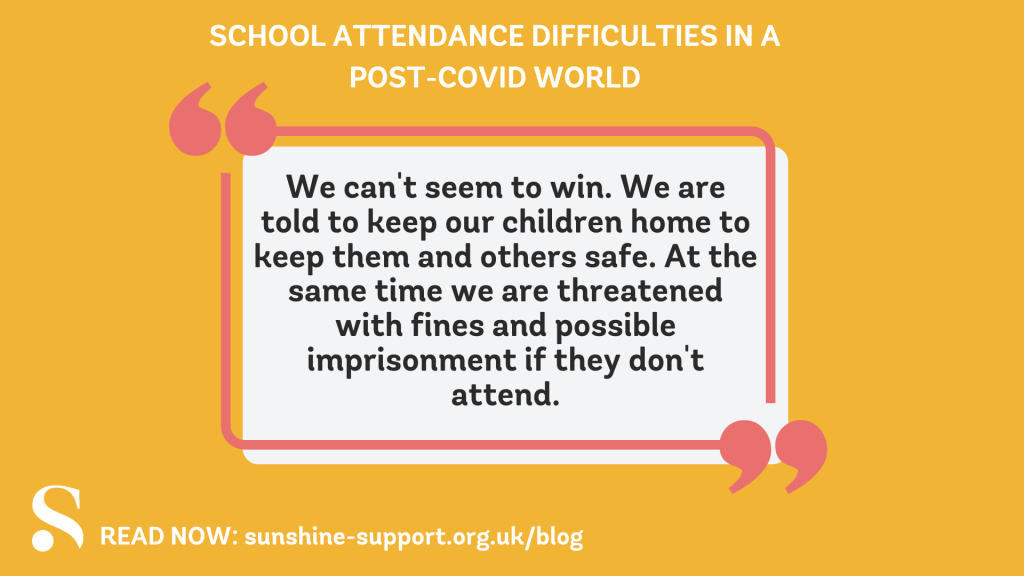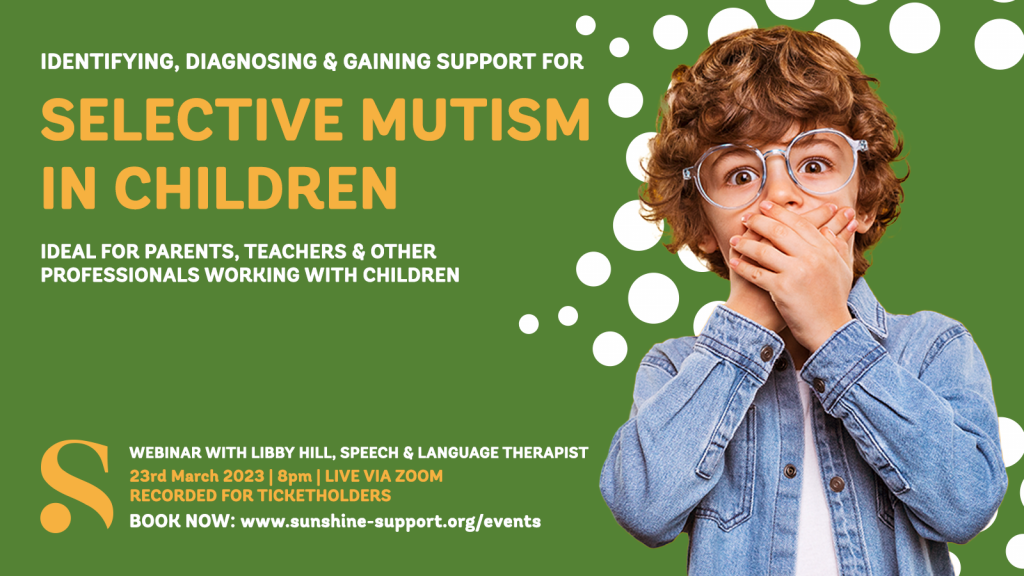
As we enter into a new year we are encouraged to reflect upon the past, both the good and the bad. If we should take anything from the last 3 years, it’s that we must be resilient when facing new challenges. For us as SEND Parents, this is second nature.
It shouldn’t be this way. We should not be fighting the system every second of every day, but we have no choice. We know better than most that you have to tool-up and educate yourself to ensure our children are getting the education they (like everyone else) deserve.
As if the world didn’t have enough weight on its shoulders with the cost-of-living crisis, NHS funding cuts, and so on… We have entered the new year with schools putting more pressure on parents than ever to make their children attend.
It’s vital we know our legal rights as well as spread understanding of why children struggle to attend school.
Why has school absence not recovered since COVID-19?
Generational Anxiety – There are countless studies indicating the anxiety and trauma both parent and child share after living through a global pandemic.
Long-Covid – One study stated: “The prevalence of long-COVID was 25.24%, and the most prevalent clinical manifestations were mood symptoms (16.50%), fatigue (9.66%), and sleep disorders (8.42%). Children infected by SARS-CoV-2 had a higher risk of persistent dyspnoea, anosmia/ageusia, and/or fever.”
A Call for Online Schooling – One thing we gained from the COVID lockdowns is the advancement of online learning. For some this type of education didn’t suit, but for others the flexibility and easy access to educational materials was ideal. Many parents are not calling for the option to learn online when needed. For example, when a child is ill or when a family is on holiday during the term time.
In addition to this, many parents are now electing to home educate or seek out EOTAS (Education Other Than At School) Packages.
COVID Babies – A study by the CORAL Study Group stated: “Pandemic-associated social isolation may have impacted on the social communication skills in babies born during the pandemic compared with a historical cohort. Babies are resilient and inquisitive by nature, and it is hoped that with societal re-emergence and increase in social circles, their social communication skills will improve.”
Continued failure to meet needs – ‘School refusal’ is the assumption that the child/young person is making a willing decision to not attend school; that the child has control over this decision and by doing so is causing a great inconvenience to all stakeholders (parents, teachers etc).
Before the Pandemic
School Attendance Difficulties were always a problem for SEND Children, even before the pandemic. This is something we as an organisation have covered in great detail.
READ MORE HERE: https://sunshine-support.org/school-attendance-difficulties-and-school-related-trauma/
What do the new Government Guidelines say?
These are the expectations of schools, as published by the Department of Education:
- Develop and maintain a whole school culture that promotes the benefits of high attendance.
- Have a clear school attendance policy which all staff, pupils and parents understand.
- Accurately complete admission and, with the exception of schools where all pupils are boarders, attendance registers and have effective day to day processes in place to follow-up absence.
- Regularly monitor and analyse attendance and absence data to identify pupils or cohorts that require support with their attendance and put effective strategies in place.
- Build strong relationships with families, listen to and understand barriers to attendance and work with families to remove them.
- Share information and work collaboratively with other schools in the area, local authorities, and other partners when absence is at risk of becoming persistent or severe.
UKHSA Statement January 2nd 2023
Flu and coronavirus (COVID-19) are currently circulating at high levels and are likely to continue to increase in coming weeks. High numbers of scarlet fever, which is caused by group A streptococcus, also continue to be reported.
We can’t seem to win. We are told to keep our children home to keep them and others safe. At the same time we are threatened with fines and possible imprisonment if they don’t attend.
Professor Susan Hopkins, Chief Medical Adviser at the UK Health Security Agency (UKHSA), said:
“It’s important to minimise the spread of infection in schools and other education and childcare settings as much as possible. If your child is unwell and has a fever, they should stay home from school or nursery until they feel better, and the fever has resolved.”
“Adults should also try to stay home when unwell and if you do have to go out, wear a face covering. When unwell don’t visit healthcare settings or visit vulnerable people unless urgent.”
What does the law say?
If found guilty under Section 444(1) of the Education Act 1996, you may receive a fine of up to £2,500 or face imprisonment (not exceeding 3 months).
Education Act 1996 Section 444(1): If a child of compulsory school age who is a registered pupil at a school fails to attend regularly at the school, his parent is guilty of an offence.
Education Act 1996 Section 443(1): If a parent on whom a school attendance order is served fails to comply with the requirements of the order, he is guilty of an offence, unless he proves that he is causing the child to receive suitable education otherwise than at school.
Section 443 Education Act 1996: Parents who fail to register their child at a suitable school without good reason and who are not providing a suitable education themselves, will be served with a School Attendance Order directing that their child attends the school named on the order. Failure to comply with the order is an offence and will result in prosecution.
Parents can challenge this if…
- Their child’s sickness can be backed up with medical evidence
- Absence has been authorised by the head teacher
- Absence if due to religious reasons/religious observance days
- No transport has been provided to the nearest appropriate school with available places and it is beyond the statutory limits for walking.
How can we help in the short-term?
- Validation along with safe and secure connections to calm anxiety by safe care-giver (usually parent/carer)
- Register your child’s inability to attend school with the GP. After all, anxiety is a health condition that requires attention. Ask for a note to cover you for the short term if possible.
- Check your school’s attendance policy, and adhere to it as much as possible. Remembering it is not ‘law’.
- Reep in touch with school as much as possible. Seek out the person who you trust and keep an open line of communication. Remember. COPRODUCTION IS KEY.







